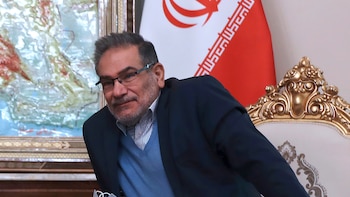
(ATR) Former IAAF president Lamine Diack is provisionally suspended from his role as an honorary member of the IOC.
The IOC Executive Board announced the decision on Tuesday following recommendations of the IOC Ethics Commission to suspend Diack amid an ongoing criminal investigation into alleged doping cover-ups during his tenure as IAAF president.
The recommendations were fueled by a World Anti-Doping Agency Independent Commission report claiming systemic and state-supported cover-ups of doping in Russia, specifically track and field athletes.
The report suggests the All-Russia Athletics Federation, the Russian Anti-Doping Agency (RUSADA) and members of the Russian government and Russian Olympic Committee encouraged the doping program and misconstrued or destroyed results at the WADA-accredited laboratory in Moscow.
As a result of the report, the IOC has asked the IAAF to "initiate disciplinary procedures against all athletes, coaches and officials who have participated in the Olympic Games and are accused of doping in the report of the Independent Commission."
The IOC added they will "take all the necessary measures and sanctions with regard to the withdrawal and reallocation of medals and as the case may be exclusion of coaches and officials from future Olympic Games."
At the press conference announcing the report, concerns were raised about the results from the Sochi 2014 Winter Games where the doping lab in Moscow was primarily used. The IOC says there is no evidence to suggest tests from those Games were tampered with.
"The IOC has no reason to question the credibility of the results of the anti-doping tests carried out at the Olympic Winter Games 2014."
The 335-page report did not include the information sensitive to the ongoing investigation of Diack by French authorities. The IC provided Interpol with the report months before the public release so it could open inquires into the claims of criminal mismanagement by former leaders of the IAAF.
Diack has been questioned by French investigators regarding allegations he received more than 1 million Euros to cover-up positive doping results.
Written by KevinNutley
Homepage photo: Getty Images
20 Years at #1: Your best source of news about the Olympics is AroundTheRings.com, for subscribersonly.
Últimas Noticias
Sinner-Alcaraz, the duel that came to succeed the three phenomenons
Beyond the final result, Roland Garros left the feeling that the Italian and the Spaniard will shape the great duel that came to help us through the duel for the end of the Federer-Nadal-Djokovic era.
Table tennis: Brazil’s Bruna Costa Alexandre will be Olympic and Paralympic in Paris 2024
She is the third in her sport and the seventh athlete to achieve it in the same edition; in Santiago 2023 she was the first athlete with disabilities to compete at the Pan American level and won a medal.

Rugby 7s: the best player of 2023 would only play the medal match in Paris
Argentinian Rodrigo Isgró received a five-game suspension for an indiscipline in the circuit’s decisive clash that would exclude him until the final or the bronze match; the Federation will seek to make the appeal successful.

Rhonex Kipruto, owner of the world record for the 10000 meters on the road, was suspended for six years
The Kenyan received the maximum sanction for irregularities in his biological passport and the Court considered that he was part of a system of “deliberate and sophisticated doping” to improve his performance. He will lose his record and the bronze medal at the Doha World Cup.

Katie Ledecky spoke about doping Chinese swimmers: “It’s difficult to go to Paris knowing that we’re going to compete with some of these athletes”
The American, a seven-time Olympic champion, referred to the case of the 23 positive controls before the Tokyo Games that were announced a few weeks ago and shook the swimming world. “I think our faith in some of the systems is at an all-time low,” he said.




